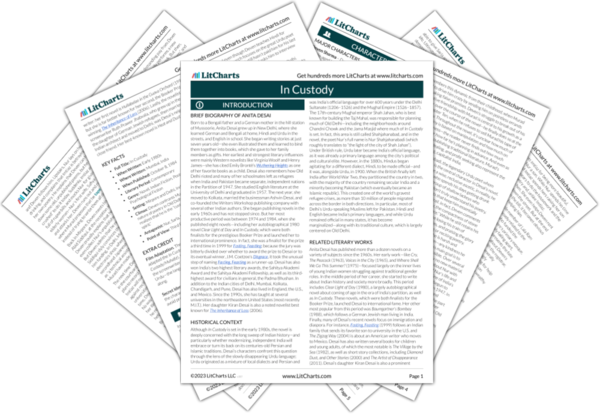Jackals are scavenger animals who largely feed on trash, carcasses, and whatever else they can find. So, by comparing Mr. Rai to a jackal, Deven and Siddiqui point out that he has a successful career and high status despite doing no original work of his own—instead, he merely manages and benefits from people who actually do the work. Then, the novel ironically juxtaposes Deven and Siddiqui's comments about modern universities' bias toward the sciences with the scene of Siddiqui convincing Rai to give Deven funding—which is clear evidence of how the skills taught in the humanities (like rhetoric and persuasion) have important real-life applications. Meanwhile, Jayadev and the Hindi department's penchant for gossip suggests that they are not serious scholars, which reinforces Deven's perception that north India's true intellectual legacy belongs to Urdu, not Hindi.
